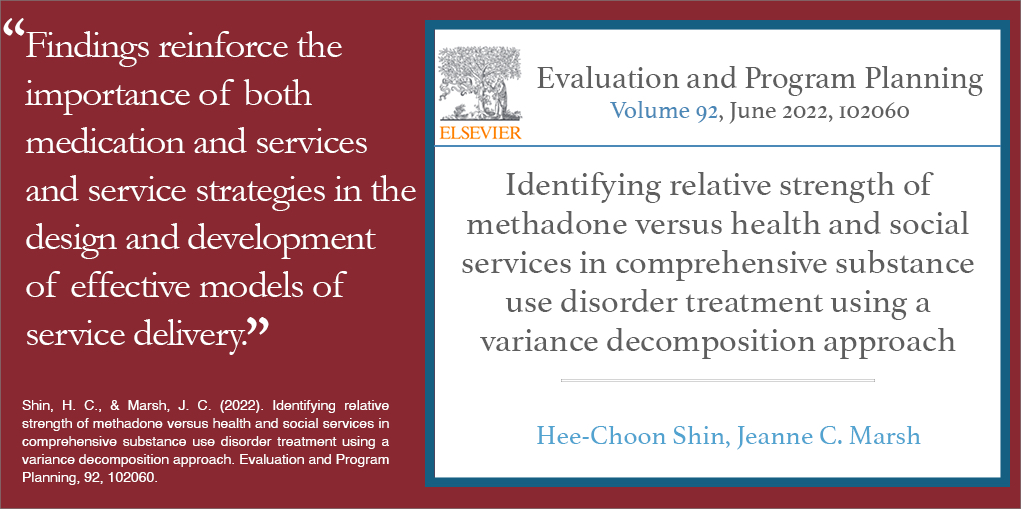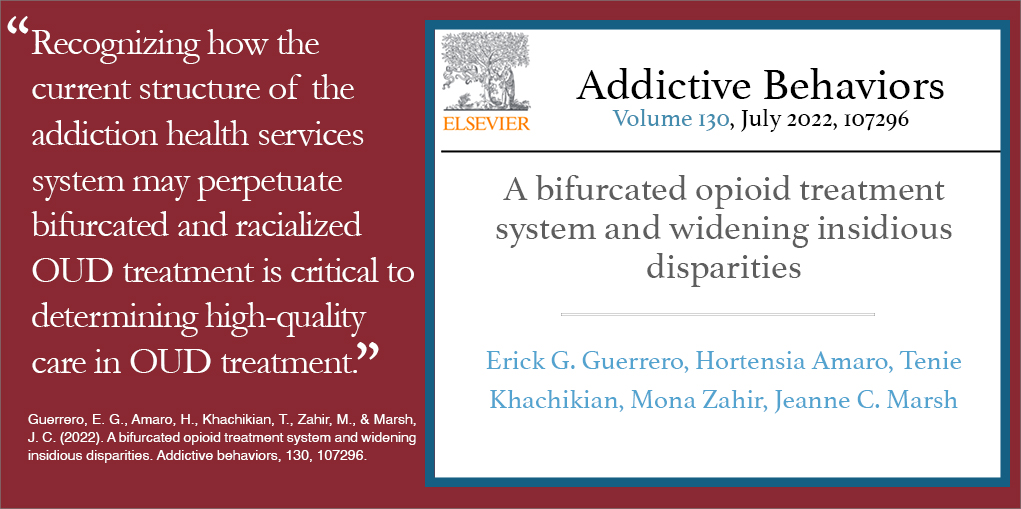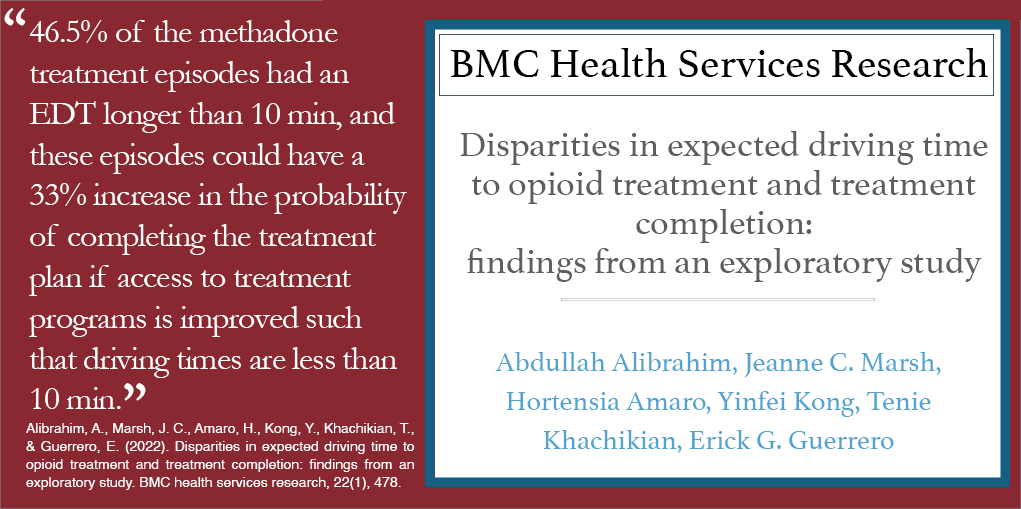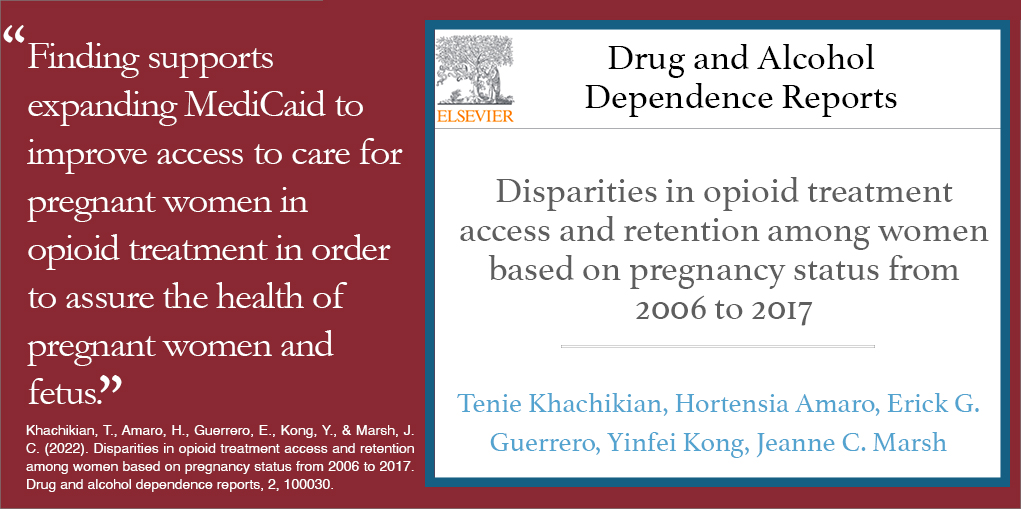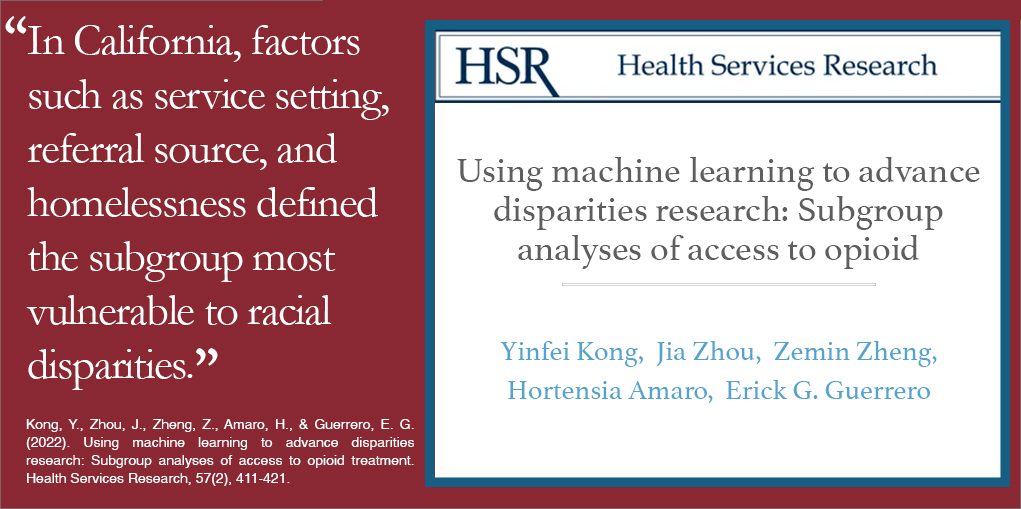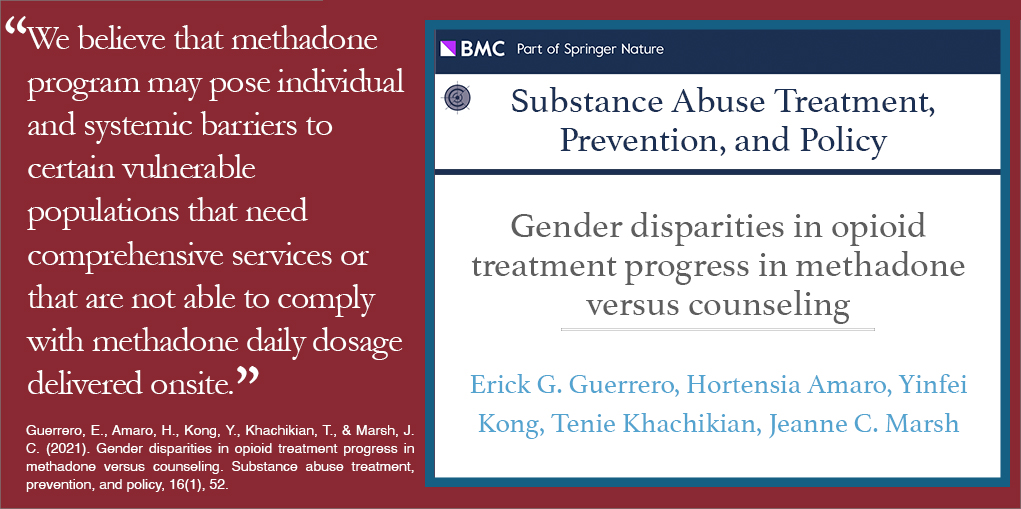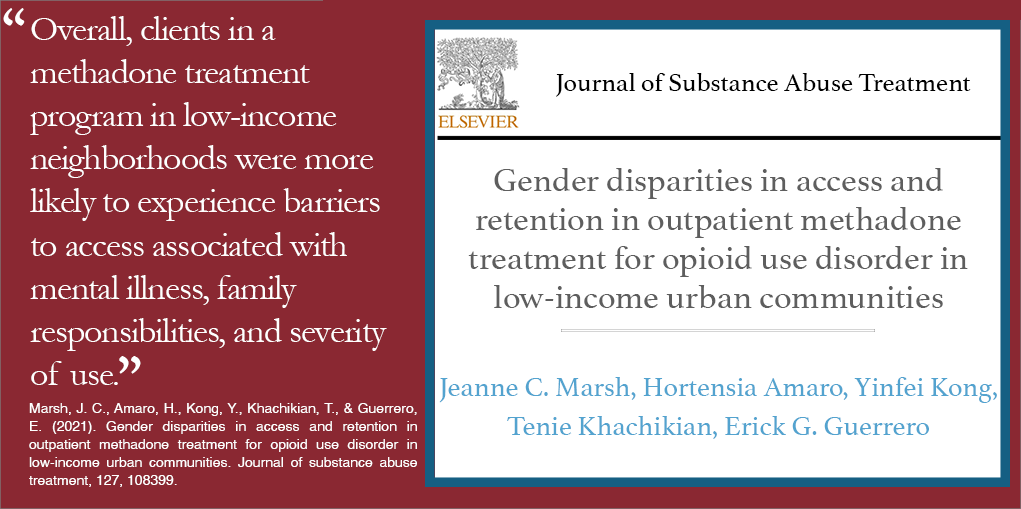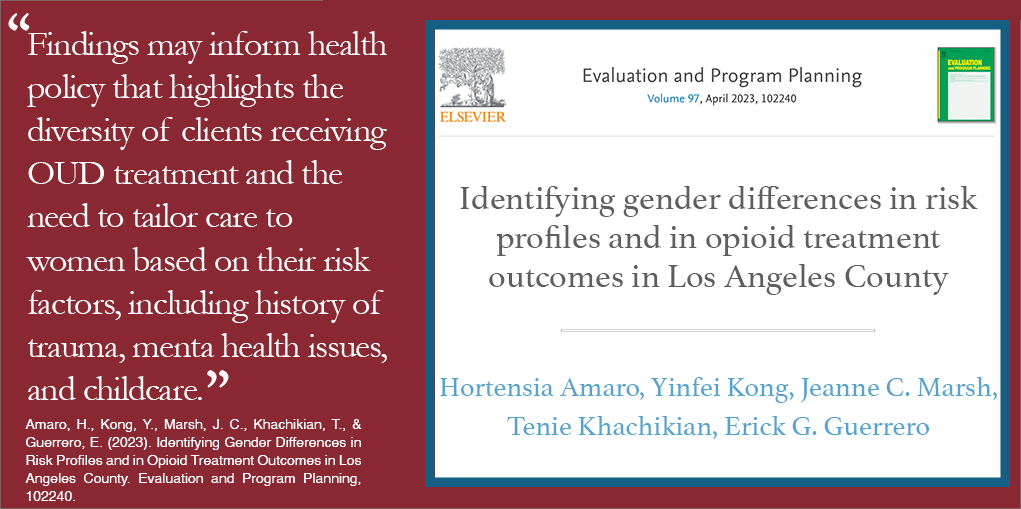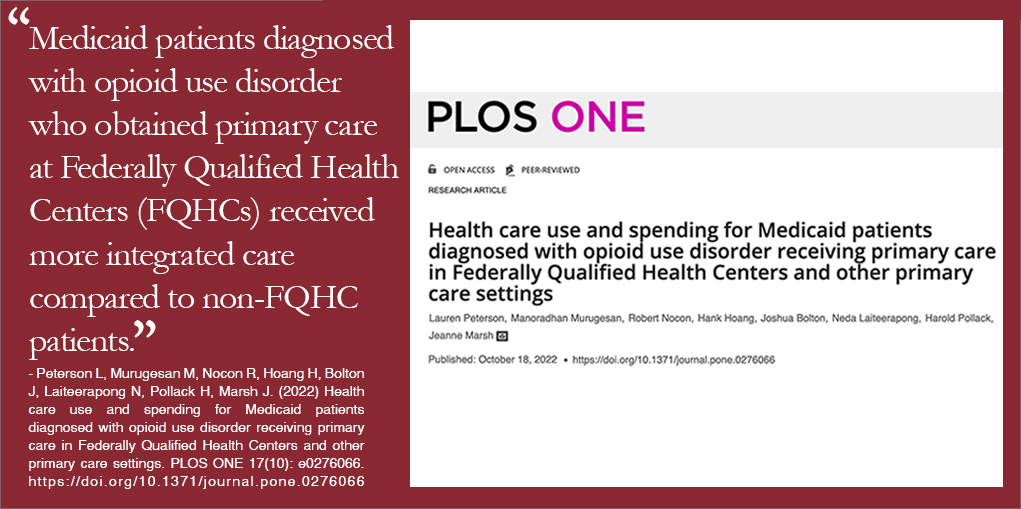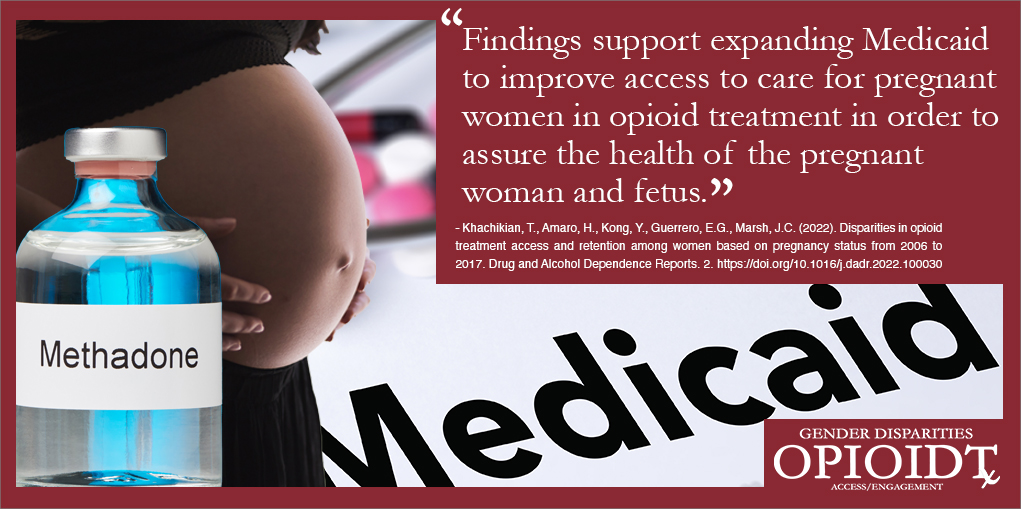Gender Disparities in Access and Engagement in Medication-Assisted Treatment for Opioid Use Disorder
The opioid epidemic disproportionately affects women, racial and ethnic minorities, and other vulnerable groups.

Medication-assisted treatment (MAT), e.g., methadone and buprenorphine plus counseling, is the recommended standard of care for all groups. Yet, little is known about strategies to improve MAT access and engagement, especially for women with opioid use disorders (OUD) who reside in low-income and urban settings.

This NIDA funded study will allow us to analyze program and client data to understand post-Medicaid pathways for increasing MAT access and engagement reducing gender disparities in OUD treatment.

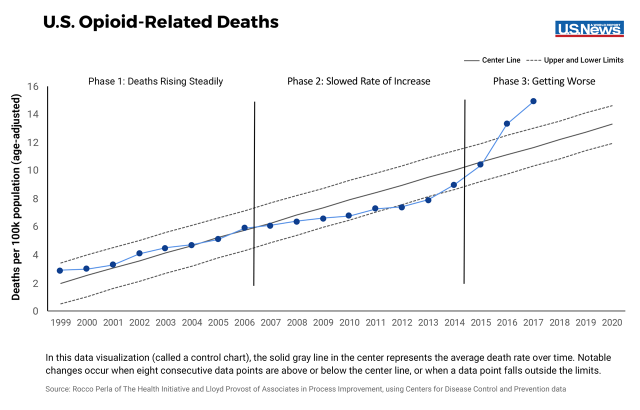
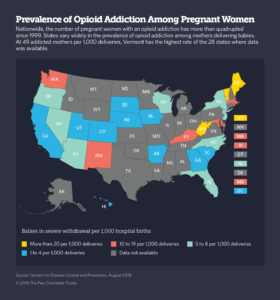
We will identify multilevel approaches to improve treatment access and engagement through identifying: (a) health disparities in susceptible populations, (b) increasing knowledge of how client risks and program can effect disparities, and (c) focusing on gender-specific practices to reduce these differences in access and engagement of treatment.
This research is innovative because it draws from unique data to understand the role of individual and program characteristics, as well as clients’ travel distance to understand how to improve engagement of minority women in MAT.





